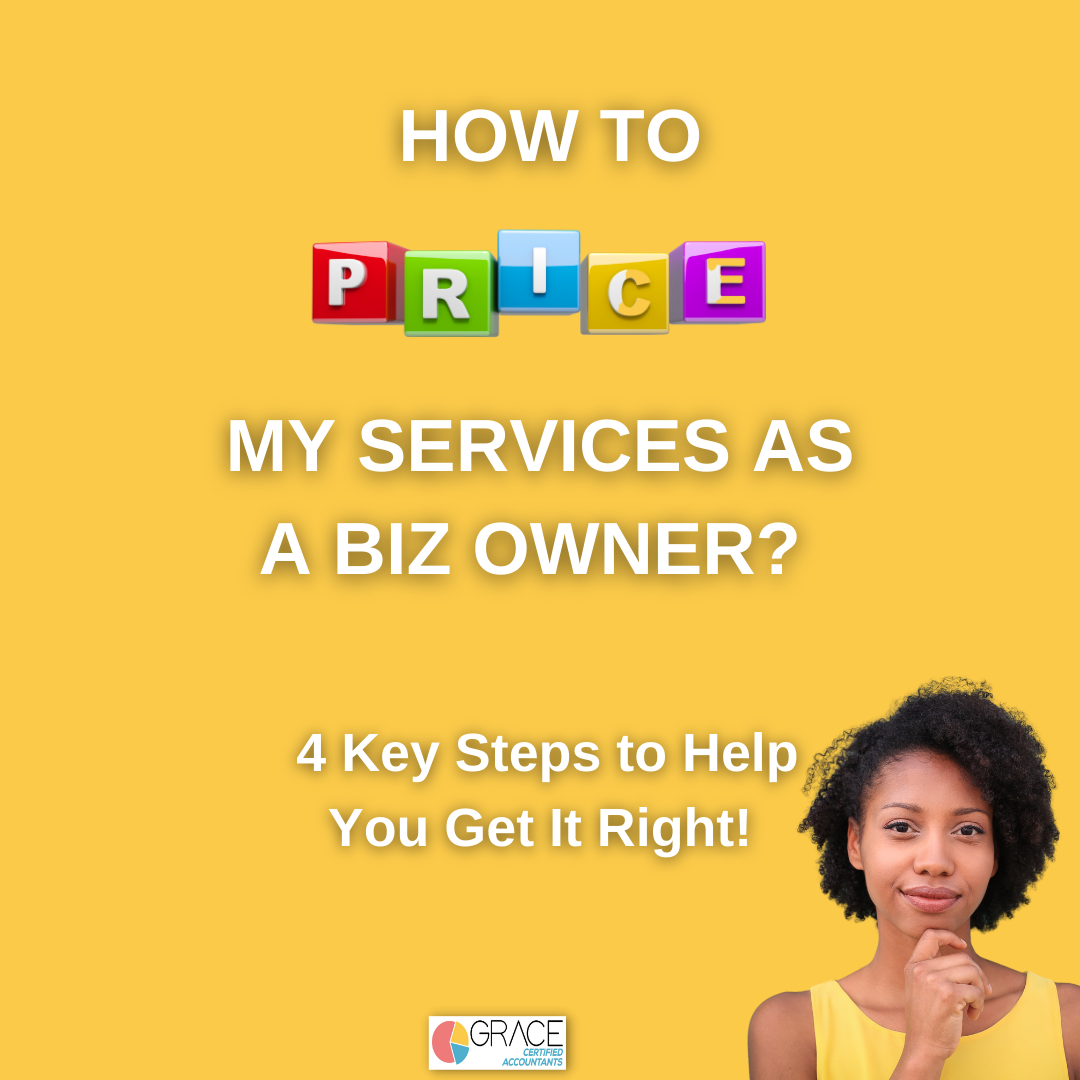How to Price My Services As a Business Owner? 4 Key Steps to Help You Get It Right
Pricing your services correctly is one of the most difficult parts of being a business owner. On the one hand, you understandably want to price yourself competitively, but you don’t want to sell yourself short, either. Profit, cash flow, and confidence are all important considerations when pricing your services, so here are four key steps to help you get it right.
Step 1: Calculate Your Costs
Even if you have a very capital-light business, there are always costs associated with running your own business. There are two types of costs: direct and indirect.
Direct costs are the costs that go directly towards providing services for your clients, such as project materials or project-specific software, direct labour, or contractor costs.
Indirect costs are more general costs that are necessary to run your business, such as:
- Rent
- Internet
- Phone Contract
- Devices
- Employee wages
- Marketing costs
- Website
- Accounting services
- Legal services
- Insurance
You need to make sure that you charge your customers enough to cover all of the above expenses and make a profit on top of that.
Step 2: Identify Your USP
Your Unique Selling Point (USP) will help you to price your services appropriately. If you’re competing based on price, then affordability will be the name of the game. However, if your USP is based around quality service or your specific expertise, you will be able to charge significantly more. If your clients are investing in you because you’ll add value to their business, then they will be much less likely to question you on price.
Step 3: Market Research
It’s important to know how much your competitors are charging because this will tell you how much prospective clients are willing to pay. Seek out your competitors via Google as well as marketplaces such as UpWork and Fiverr. Remember, however, that the latter sites often feature many providers willing to sell themselves short in order to get started. Pay attention to their target customers, level of experience, and location.
Remember that if you’re providing something that your competitors lack, you will be able to charge more than they do, so long as you are able to properly articulate this added value.
It’s also a good idea to try and get some feedback from your network or even conduct a focus group to gain insight around pricing.
Step 4: Consider Hourly vs Flat Fees
Some business owners charge by the hour whilst others prefer flat fees. The correct path often depends on your industry and also your level of experience. If you know exactly how much time a certain project will take you, then a flat fee might be best, whilst if you’re unsure then it may be better to go down the hourly route.
If you’re just starting out, then you may get faster at your work as time goes on. In this case, flat fees make sure that you’re not punished for becoming more efficient!
In order to calculate an hourly rate, consider the number of hours you want to work per week and multiply that by 52. Then, subtract holiday and sick time to calculate the number of hours you’ll actually work.
After that, calculate your billable hours – i.e., the number of hours that directly generate revenue. Billable hours represent time spent on client work, whereas non-billable hours are the ones spent on admin, marketing, paperwork, and the like.
Next, divide your total expenses by your billable hours. This will give you a break-even hourly rate. Then, multiply this figure by your desired profit margin to find out how much to charge per hour.
From My Business to Your Business
After reading this blog post, you should be able to calculate the cost of your services and figure out whether hourly or flat fees make the most sense for your business. Remember that good quality clients will be willing to pay a fair price for a great service, so be confident about the value that your business adds and don’t sell yourself short.
You’re very welcome to get in touch with me at Grace Certified Accountants if you have any questions. Book a Free Call directly into my diary HERE.
Speak Soon!
Dora Ngoma
Director & Managing Partner
Grace Certified Accountants
Please check out my other blogs for more advice on how to run your bookkeeping and accounts smoothly. Also take a look at us on Facebook, LinkedIn, Youtube Channel and Instagram for more valuable insights.
